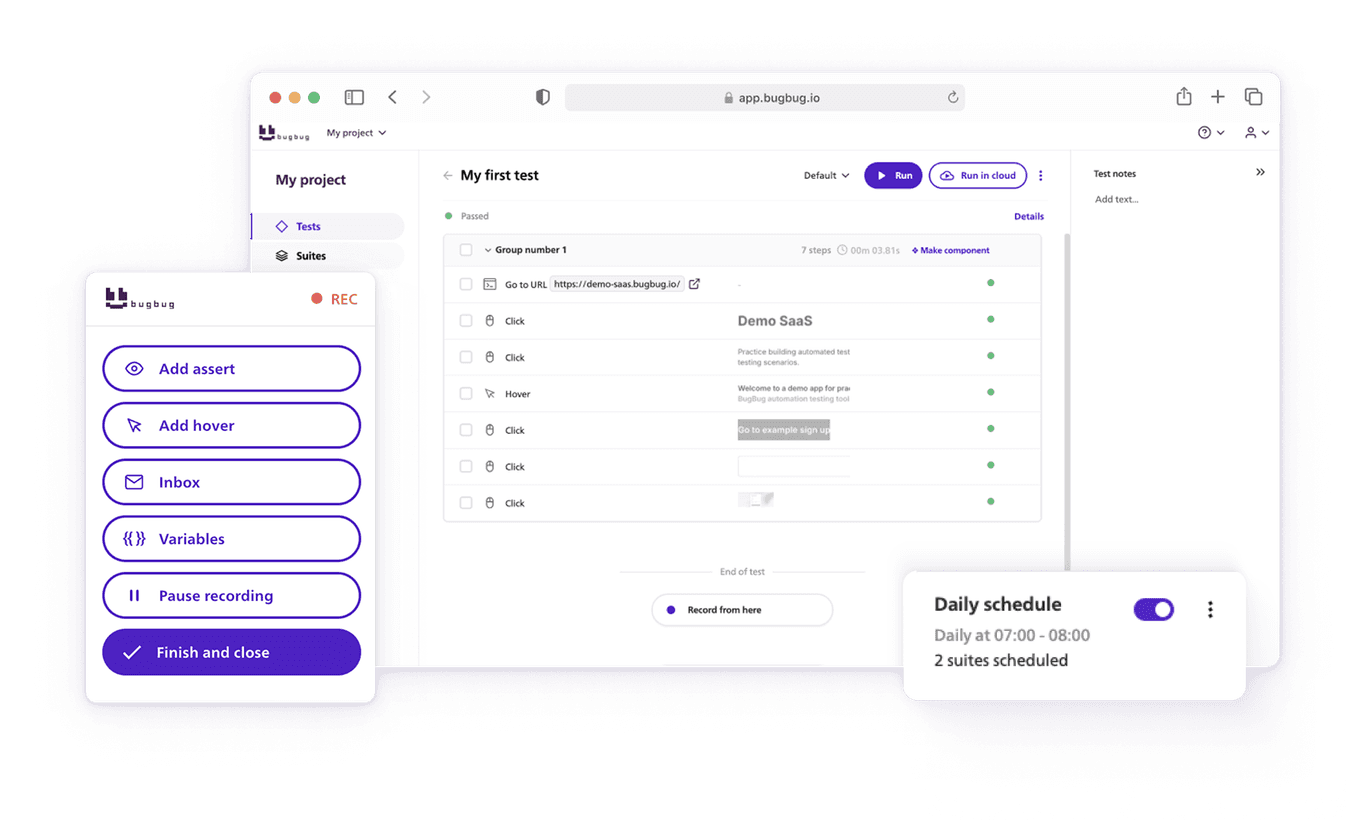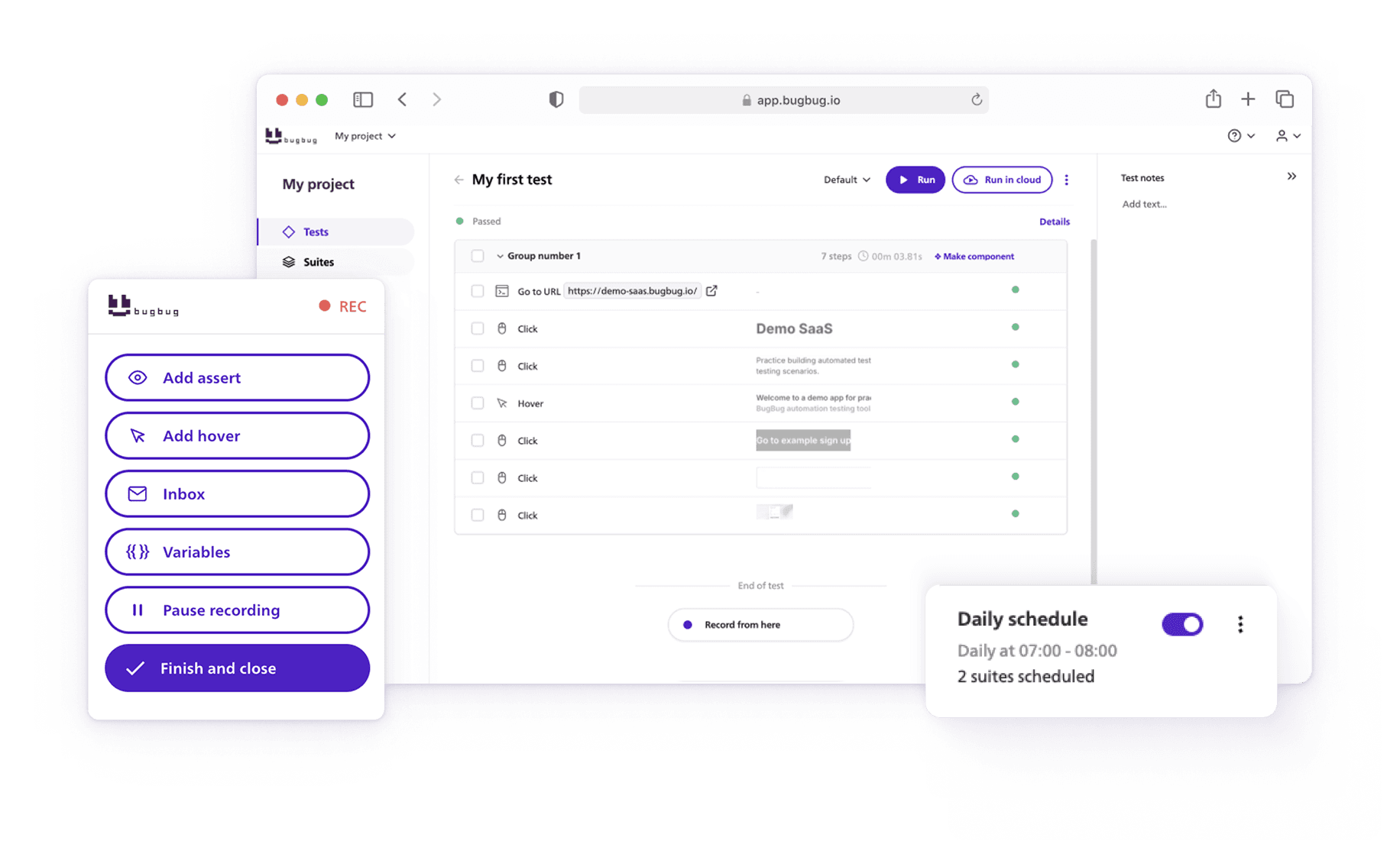Google Chrome and Chromium are two browsers that share the same foundation but have distinct differences. Many users looking to download and install a browser often ask: Chromium vs. Chrome – which one is better?
If you’ve ever wondered about the difference between Chromium and Chrome, this guide will break it all down for you. Whether you're a developer, a privacy-conscious user, or just looking for the best browser experience, this comparison will help you decide which browser suits your needs.
🎯TL;DR - Chrome vs. Chromium
- Chrome is more user-friendly and feature-rich – It includes automatic updates, Google Sync, DRM support for streaming, and better security patches, making it the preferred choice for most users.
- Chromium is open-source and privacy-focused – It lacks proprietary Google services and tracking but requires manual updates and configuration for certain features.
- Developers and testers often prefer Chrome – Chrome is widely supported for web development and testing, with better stability and compatibility across various platforms.
- Chromium is better suited for Linux users and privacy-conscious individuals – It can be installed directly via Linux distributions but lacks automatic updates and some media playback support.
- For everyday browsing, Chrome is the better choice – It offers a seamless, polished experience with regular updates, while Chromium requires manual effort to maintain and configure.
Check also:
Automate your tests for free
Test easier than ever with BugBug test recorder. Faster than coding. Free forever.
Get started
What Is Google Chrome?
Google Chrome is a proprietary browser developed by Google, built on the open-source Chromium project. As one of the most popular browsers globally, Chrome dominates the global browser market due to its seamless performance, features and add-ons, and integration with Google services.
Key Features of Chrome
- Built on Chromium with Proprietary Features
- Chrome is a browser developed by Google, but it includes additional proprietary code that isn’t part of Chromium’s open-source foundation.
- These additions include automatic updates, Google Sync, and media codecs for video playback.
- Performance and Resource Usage
- Chrome offers better stability, built-in security patches, and optimized memory usage.
- While Chromium is a free browser with minimal bloat, Chrome users benefit from Google's refinements, making it a top choice in the browser market.
- Security and Privacy
- Chrome supports automatic updates to ensure security patches are quickly applied.
- However, Chrome tracks user activity for personalized ads, while Chromium does not track users in the same way.
What Is Chromium?
Chromium is an open-source web browser developed by Google and maintained by the Chromium Project Development Community. It serves as the base for Chrome and many other browsers, including Microsoft Edge, Brave, Opera, and Vivaldi.
The Difference Between Chrome and Chromium
- Chromium Does Not Include Proprietary Features
- Unlike Chrome, which is a proprietary browser, Chromium does not support built-in DRM (Digital Rights Management), meaning Chromium users might face issues with services like Netflix.
- There is no built-in Google Sync, automatic updates, or licensed media codecs.
- Security and Updates
- Chrome is built to receive automatic security updates, while Chromium lacks this feature, requiring manual updates for security patches.
- This makes Chrome a better option for casual users, while developers or browser testers may prefer using Chromium.
- Privacy Considerations
- Chromium does not track user activity the way Chrome does.
- If privacy is your top concern, installing Chromium without Google services can minimize data collection.
Chrome OS vs. Chromium OS
Beyond browsers, Google also develops Chrome OS, which powers Chromebooks. However, there is also an open-source alternative: Chromium OS.
- Chrome OS is a proprietary edition of Chromium OS, including Google services, automatic updates, and Play Store support.
- Chromium OS is the open-source version of Chromium, mainly used by developers or those who want a Linux-based experience without Google's restrictions.
If you're considering a Chromebook, Chrome OS is the better option due to better support, features, and stability.
Automate your tests for free
Test easier than ever with BugBug test recorder. Faster than coding. Free forever.
Get started
Should You Use Chrome or Chromium?
The choice between Google Chrome vs. Chromium depends on your needs:
- Choose Chrome if:
- You want a secure and stable browser with automatic updates.
- You need built-in Google services like Google Sync.
- You want the best video playback experience with licensed codecs.
- Use Chromium if:
- You prefer an open-source browser without proprietary code.
- You’re a developer or browser tester who needs access to Chromium’s source code.
- You want more privacy and less tracking.
👉 Check out our guide on Web Application Testing tools.
How to Download Chrome and Chromium
If you want to download Chrome, visit the official Chrome website for the latest Chrome version.
For those who want to download Chromium, you can:
- Get Chromium directly from Linux distributions like Ubuntu.
- Visit the official Chromium Project download page to get the latest build.
- Use package managers like Ubuntu Software Center to install Chromium directly on Linux.
Final Thoughts on the Chrome vs. Chromium Debate
The Chrome vs. Chromium debate is essential for anyone choosing the right browser for their needs. While Chrome is a web browser built on top of Chromium, it includes proprietary enhancements that make it the default browser for millions of users worldwide. Google adds to Chrome key security updates, features and add-ons like Google Sync, and automatic updates, making it an ideal choice for those who want a polished and secure experience.
Chromium is an open-source project, offering more flexibility and transparency, but it lacks some of the critical components available in Chromium-based browsers like Chrome, Edge, and Brave. Unlike Chromium, Chrome provides DRM support, making it better for streaming content. However, Chromium doesn’t track users in the same way as Chrome, making it an attractive option for privacy-focused users.
For browser development and cross-browser testing, Chrome is widely supported. Developers rely on Chrome due to its stability, compatibility, and ability to test applications across thousands of real browsers. If you are involved in browser testing, you need a web testing tool that works seamlessly with Chrome.
Happy (automated) testing!
Test Your Web App with BugBug
For teams looking to ensure quality in their web apps, BugBug is a powerful, codeless test automation tool that supports Chrome. It is particularly useful for e2e tests of websites and web applications.
- 🚀 Want a stable, feature-rich browser? Stick with Google Chrome, as it includes features and add-ons than Chromium and is frequently updated.
- 🔐 Privacy-focused? Consider Chromium browser vs. Chrome, as Chromium doesn’t include proprietary tracking features.
- 🛠️ Developing or testing web applications? Use Chrome for browser development and a tool like BugBug for efficient cross-browser testing.
- 🖥️ Using Linux? You can install Chromium directly from Linux distributions, but you’ll need to manage updates manually.
- 🔄 Need an open-source alternative? Chromium is the open-source base for many used web browsers, but it requires manual configuration for some functionalities.
Automate your tests for free
Test easier than ever with BugBug test recorder. Faster than coding. Free forever.
Get started
FAQ: Chrome vs. Chromium
Happy (automated) testing!



